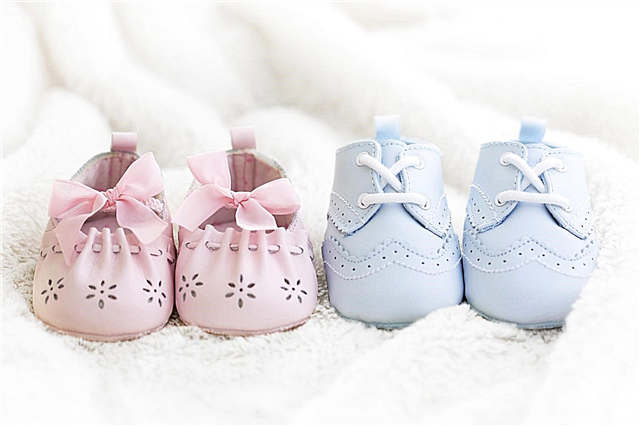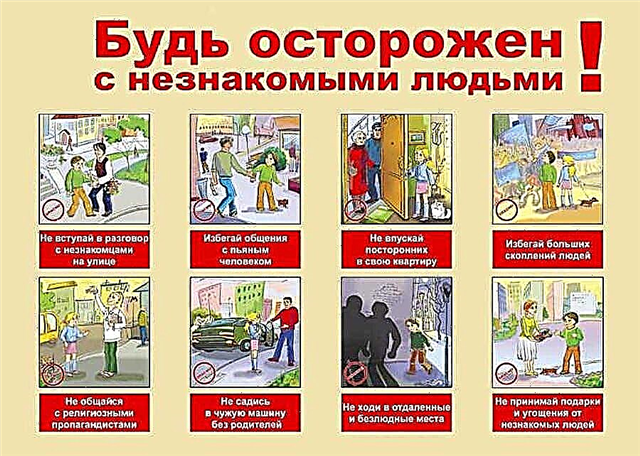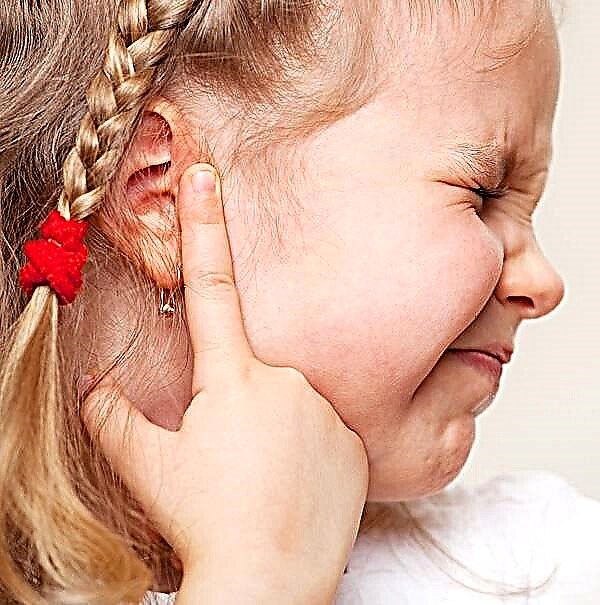Divorce through the eyes of a child. The benefits of joint custody for the child.
Divorce is not uncommon these days. According to disappointing statistics, about half of the marriages concluded in Russia break up. Although society is becoming more and more tolerant of divorce, the breakdown of the family is a serious stress for all its members. Children especially suffer from this. The task of the parents is to help the child survive the divorce of the parents and mitigate its negative consequences on the upbringing process.

Divorce through the eyes of a child
Children in a divorce situation feel intense nervous tension. Unfortunately, in most cases, the separation of mom and dad inflicts psychological trauma on them... An exception is when a parent leaves, whose presence caused severe discomfort. For example, when a mother divorces her alcoholic father, who raged and beat his wife and children. However, most often the offspring are very worried and do not want their parents to disperse. Psychologists distinguish several generalized children's reactions, largely dependent on age.
- From birth to 1.5 years. The crumbs are not yet able to understand what is happening in the family. The reaction to the divorce of parents at this age mainly depends on the experiences of the mother, since they subtly feel her psychological state and adopt it. The toddler can show his emotions with whims, tantrums, nervousness, refusal to eat, problems with sleep. Psychological discomfort can affect health: frequent illnesses, exacerbation of congenital diseases;
- 1.5 to 3 years old. The emotional connection between the baby and his parents at this age is very strong. They are the center of his small universe, so the departure of one of them will be difficult. Emotions can also affect physical health, manifesting themselves in problems with appetite and sleep. It happens that the baby becomes unmotivatedly aggressive: he fights, bites. In some children, there is a return to infant forms of behavior: nipple sucking, refusal to go to the potty;
- 3 to 6 years old. During this period, children develop a vague understanding of what parental divorce is. They suffer from the fact that one of the parents no longer lives with them. Preschoolers tend to blame themselves for this. Physical manifestations: poor appetite, sleep. Various fears and fantasies may appear. It happens that the offspring behave aggressively towards the parent with whom they were left to live. Manifestations of risky behavior, disobedience increase, injuries become more frequent;
- 6-11 years old. The stress of a child's divorce can be exacerbated by a 7-year crisis that coincides with school enrollment. If adaptation to school is accompanied by an unfavorable situation at home, this can cause problems with studies, unwillingness to go to school, conflicts with peers, and antisocial behavior. At this age, children already understand what a divorce is, they are often afraid that they will not see one of the parents, they will not be able to communicate with him. Fears can also arise about their future, which seems uncertain and frightening. Some children think that they can restore the family, try to reconcile their parents. If this fails, children feel deceived, abandoned;
- 11 years and older. Teenagers are already able to understand what divorce is, but inwardly they cannot accept it. Against the background of raging hormones, everything is taken to heart. Teenagers experience resentment and disappointment, often there is a feeling of uselessness and abandonment. The departure of one of the parents can be perceived as a betrayal, the reaction to which is behavior disorders: absenteeism, alcohol consumption, smoking. It also happens the other way around: a child becomes an ideal son or daughter, thus trying to achieve parental reconciliation.
At any age, it is psychologically very difficult for a child when mom and dad decide to divorce. Parents need to set a goal for themselves to overcome mutual claims and learn to interact, taking into account the interests of the child.
Tips for Divorced Parents
- Joint custody of the child will be the right decision in a divorce situation. It happens that this is very difficult to do, because ex-spouses cause many conflicting and even negative emotions in each other. Nevertheless, this must be done in order to minimize the psychological trauma of the child from the divorce of the parents. Psychologists say that when an ex-husband and wife maintain a calm, even relationship, continue to take care of and raise their children together, then the children feel normal.
- Don't avoid talking to your child about divorce. You can't lie and say that one of the parents went on a long business trip. It is best to talk openly with your child. It is good if both parents take part in the conversation. The psychological state of the child after the divorce largely depends on how this conversation goes.
- In a relaxed atmosphere, tell them that Mom and Dad are breaking up because they can no longer be happy together. Be sure to mention that you are divorcing each other, but not with the child. Your parting is not his fault. Both of you will still love and will love your baby, communicate and spend time together, although someone will live separately.
- You cannot quarrel and insult each other in the presence of a child. Disagreements and disputes try to discuss as peacefully as possible, without involving the offspring in conflicts.
- Do not criticize your ex-husband or wife with a child. If the child is critical of the ex-spouse in his absence, you should not encourage and support him in this.
- Do not put a child in a situation of choice between parents and do not turn against the ex-spouse... The child loves and needs each of you.
- Do not use children as an intermediary between you: forcing them to send angry messages, demanding money, extracting information about their personal life. If you have something to say to your ex, do it in person.
- Stop your child's attempts to manipulate you with threats that he will go live with the other parent. This will teach him to manage you and negatively affect moral development.
- Do not humiliate your offspring by finding in his behavior traits of negative similarity with his ex-spouse. "All in the father! (to the mother!) ”- such phrases can provoke even more negative behavior and set up against both parents.
- Never blame your child for your problems, unsettled personal life, everyday difficulties. This is the fault of adults, and you shouldn't vent your irritation on him.
- Don't forbid the other parent from seeing the child. Although the place of residence of the offspring is determined by the court, mom and dad should be close. Agree when and how much time the child will spend with everyone, and do not infringe on the ex-spouse's right to communicate with him.
- Be open in communication with your child, while avoiding unnecessary details. The child has a subtle sense of falsehood, so it is better to tell about his experiences in a language that is understandable to him. So he will understand that he is not alone in his feelings. On the other hand, do not blame your problems on him, they may not be up to him, no matter how adult he may seem.
- Show your love and affection generously. She is more than ever necessary for a child in this difficult time. On a subconscious level, many children fear that if their parents stop loving each other, they can easily stop loving them. Show that it is not.
- Give your child as much attention as possible: read together, be creative. Try to expand your circle of contacts so that the child is distracted from family problems, more often spend time outside the house in joint walks, playing sports.
- Help the offspring set achievable goals and achieve their fulfillment. Be generous with praise, but don't shy away from fair punishment.
- Try to be an example for the child: do not act immorally, do not withdraw into yourself, learn to overcome the blues and enjoy life - and he will definitely join you in this!
If parents manage to agree among themselves after a divorce and jointly take care of their child, this has the best effect on his psychological well-being.
The positive impact of joint custody after divorce
- The child feels safe... The participation of both parents in the child's life gives him a sense of confidence in their love, has a positive effect on self-esteem. This helps the growing person to quickly and easily accept the fact of separation of the closest people.
- Joint parental care gives the child a sense of stability, orderliness of life. This allows, just like in a complete family, to form a system of rules, rewards and punishments. The offspring is confident in the future, knows what to expect from others and what is expected of him.
- The child learns to deal effectively with difficulties. Having before our eyes the experience of parents who have successfully overcome disagreements and were able to cooperate for a common goal, the child adopts their model of behavior in difficult situations.
Divorce is not a death sentence for a child. The wisdom and love of parents, their ability to compromise, and forget mutual grievances will help him cope with stress and overcome it with the least psychological losses.
- How to properly tell your child about divorce - advice from a psychologist
- "I do everything by myself": 5 reasons why mothers do not serve child support in vain
- The husband abandoned the child: what the mother should do
- How to survive a divorce from two children: 7 options for a mom
- Why husbands cheat on their pregnant wives - comments from men and advice from a psychologist



